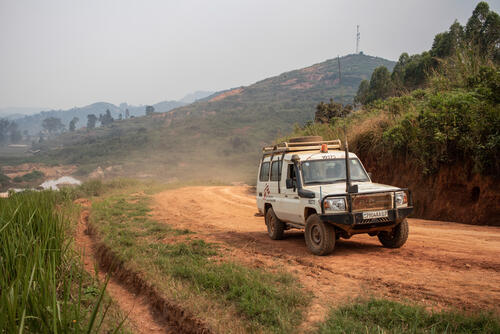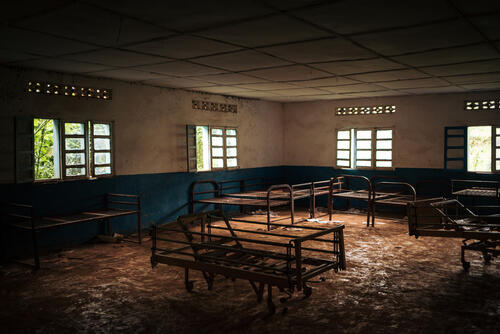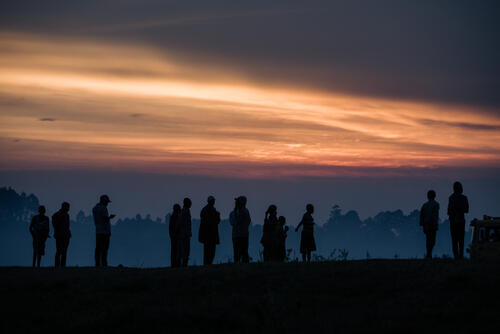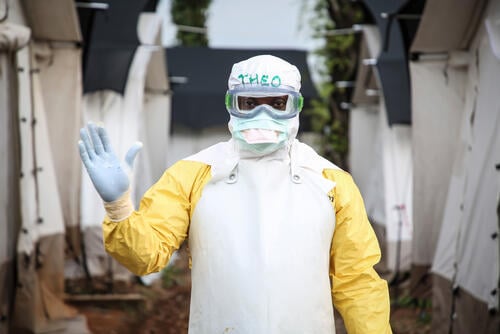People in parts of Ituri province, Democratic Republic of Congo (DRC), are without access to medical care after Médecins Sans Frontières (MSF) suspended activities following an attack in late October. MSF calls for an investigation into the attack to be launched, and for the groups in the conflict to respect humanitarian and medical aid.
On 28 October, unknown attackers targeted an MSF convoy, leaving two of our staff injured on the road to Bambou, in Ituri province, in DRC’s northeast. The attack took place as the MSF vehicle was returning from an area where our teams had been responding to people’s needs. Currently, the perpetrators and their motives are still unknown.
“Today, we do not have safe access in the area, so we cannot relaunch activities,” says Stéphane Hauser, MSF project coordinator in Nizi. “All parties to the conflict must commit to ensure the safety of humanitarian workers with no exceptions.”
Since the attack, MSF activities supporting the Ministry of Public Health in the Bambou and Nizi regions have been suspended. As a result, our medical teams will no longer access these two locations and will not relaunch activities until further notice. In the meantime, we have called on the authorities to launch an investigation into the incident in Bambou.
We are outraged that wounded and sick people may once again pay the price of this insecurity.Stéphane Hauser, MSF project coordinator in Nizi
For the past four years, we have been working to provide medical care to wounded people affected by the conflict in Ituri, on both sides of the front line.
In order to meet the needs of the people affected by a deadly conflict, it is essential that access for our teams is facilitated and secured in all disputed areas.
Violence has been raging in Ituri province since 2017, particularly in areas where we are managing projects.
“In order for MSF to resume activities, there needs to be an immediate understanding and acceptance of our humanitarian aid and principles,” says Hauser. “The parties in the conflict must clarify they understand our principles quickly so that we can establish whether the conditions allow for us to safely return.”
MSF calls on the FARDC*, CODECO* and all stakeholders involved in the conflict in Ituri to ensure the safety of people to allow the resumption of humanitarian aid throughout the province.
*FARDC: Armed Forces of the Democratic Republic of Congo; CODECO: Cooperative for Development of the Congo.
MSF works according to the principles of impartiality, neutrality and independence. In Ituri province, in collaboration with the Ministry of Health, MSF supports four general hospitals, 12 health centres, three health posts and 32 community healthcare sites in the health zones of Drodro, Nizi and Angumu. We provide care for paediatric diseases, malnutrition, malaria, sexual violence and mental health.
MSF's activities in Nizi and Bambou have provided care for more than 470,000 people, including nearly 175,000 in Nizi, 176,000 in Bambou and 120,000 internally displaced people. Within this project, MSF teams carried out more than 33,000 consultations in the first half of 2021 and conducted 21,229 awareness sessions.






